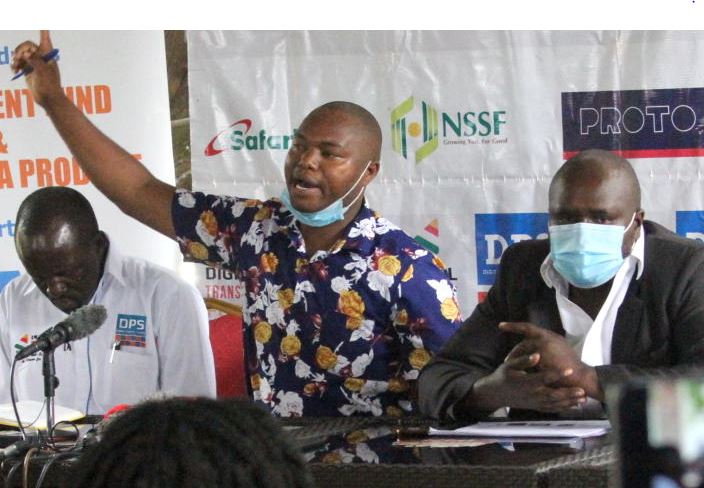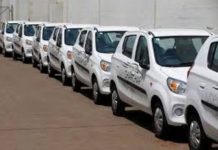AfricaPress-Kenya: They are buoyed by a recent UK Supreme Court ruling that Uber drivers were “workers” and not independent contractors.
The talk meant to fill the awkward silence during that short drive across towns has since become a monologue of distress.
Ride-hailing app drivers are being driven off the road by the gig economy. Things fell apart and something has to give, they say.
Last year, due to the pandemic, dozens of their vehicles were auctioned over non-payment of loans and many drivers quit the business.
Now kadere, as the app drivers refer to themselves, want better terms. They are fired up by a recent UK court ruling that Uber drivers are “workers” and not independent contractors.
“Cars have become many and jobs are hard to come by. App companies have capitalised on this to bring prices down,” digital cab driver Zachary Mwangi said of the situation.
Mwangi, who entered the business two years ago, is on the top taxi-hailing apps including Uber, Bolt and Little Cab.
He said the commissions charged by the companies are exploitative, noting that unhealthy competition between the apps has led to price undercutting.
Uber and Bolt charge 25 per cent and 20 per cent commission, respectively. But Kenyan drivers want minimum commissions set at 15 per cent for the Nairobi market and 10 per cent for Nakuru and Mombasa markets.
Mwangi said the app firms don’t consider maintenance costs such as fuel, insurance per trip and service costs.
“The number of trips no longer matter and a trip could be worth Sh140. “Even if I make 10 in a day, that is only Sh1,400. The fuel I have spent is half that amount then factor in the commission and maintenance costs and I end up doing zero work,” he said.
Wycliffe Alutulala, the Digital Transport Forum secretary-general, termed the commissions as “daylight robbery.”
He said that car owners and drivers have heavily invested in the digital taxi business, only to be bled dry by technology platforms with no local faces.
“All the cars you see on these apps range from Sh650,000 to more than Sh1 million. We have 21,000 members. Ask yourself how much has been invested by the people who bought the cars,” he said. “Uber is the largest app hailing firm in Kenya but has about ten members of staff,” Alutulala said last week in during a gathering of digital taxi operators in Nairobi.
Brian Njao, the Uber Head of East Africa told Weekend Business that “a lot” goes into the 25 per cent commission charge including value addition to spur demand.
“It’s a fee we charge flat across the board and if you think about it in terms of drops in demand and supply, it works differently from actually charging a fixed fee where when demand is low, the fixed fee becomes more expensive.
“When demand is low and it’s a percentage, then we are also not making money,” he said.
Njao explained that the value addition includes driver support, customer care, technology and advancement.
He said they also offer promotions to spur customer demand. “If you ask the drivers, the Uber app is one of the most intuitive in even ensuring they know where demand is so that they can place themselves.
“The net effect is that we are not earning 25 per cent but re-investing part of that money to ensure that we are balancing the marketplace,” Njao said.
The UK court ruling is now Kenyan digital taxi operators’ latest weapon against the apps. They want employment protection such as health insurance and minimum wage.
As independent contractors, the drivers say they are not consulted despite being “partners.”
Mwangi says regulation of the industry will ensure proper consultation as the current business model doesn’t respect the driver investors.
He said they keep changing the business model, noting: “When fuel prices went up recently, we woke up to changes in pricing. I used to earn Sh28 per kilometre (km) now its Sh24 per km.” Njao however welcomed regulations but said they were engaging the State to iron out contested rules such as the ones capping the service fees.
Drivers also want an upfront payment feature on the apps and “dead miles” — the distance covered when picking up a client, scrapped.
Njao defended the upfront fare saying it is automatic in checking traffic and ensuring everything is as exact as possible. “The mapping system estimates what the average time and kilometre would be for that trip,” he said.
Mwangi claimed the apps don’t identify customers’ full names and destinations until clients enter the car, endangering their lives.
He wants app firms to capture such details before a trip. He said the business could also not pay for the car. “The business is no longer sustainable. We invested up to Sh1 million to buy a car and out of that, we are now getting returns of only Sh150 in a day,” he said.
In 2018, Stanbic Bank entered into a partnership with Uber and CMC Motors to provide drivers with Sh835,000 low-cost vehicles at 14 per cent interest payable in three years.
Most of the vehicles have been put on auction owing to the effects of the pandemic among other factors. The vehicles Suzuki Alto belonging to Uber ChapChap drivers who defaulted on their payments.
“The loan repayments they make are cheaper than renting a vehicle,” Njao said.
He said defaults were a cocktail of a bad economy made worse by the virus, and mismanagement.
“There are defaults but from what Stanbic data show, the percentage is not higher than other non-performing loans,” he said. The drivers also want the apps agreement localised. They also want a clarification on the digital service tax. The law caps commissions at 15 per cent.


